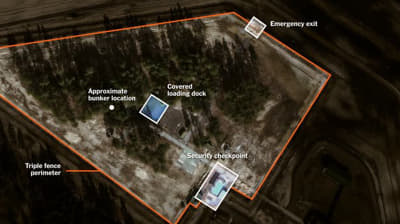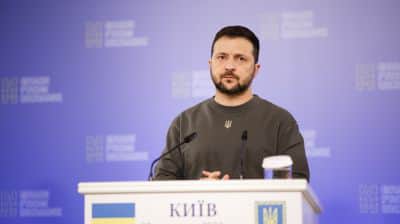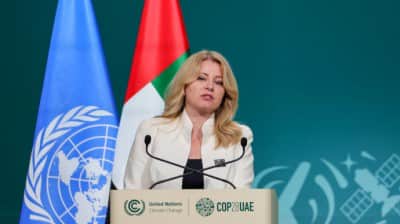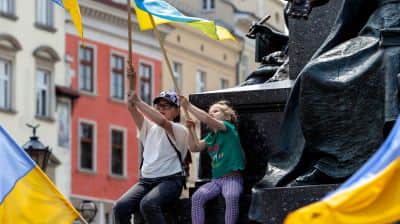"Finally, we can speak Ukrainian": Ukraine brings back 16 more children deported to Russia and Crimea
Sixteen children aged 7-16 from Kherson Oblast, deported by the occupiers to Russia and occupied Crimea allegedly "for a rest", have been returned to Ukraine.
Volunteers from the charity fund Save Ukraine have evacuated the children to their homeland. In total, 14 families managed to bring their children home.
The Ukrainian children had not seen their relatives for several months; some for almost a year, some since October. All of them were transported to Russian cities (such as Yeysk in the Krasnodar Krai), temporarily occupied Crimea (to Feodosia and Yevpatoria) and Kherson Oblast (to occupied Henichesk).
"They all have different stories, but most children were deported, or abducted. Most children from Kherson Oblast were sent for "rest" in October. What kind of rest [summer – ed.] camps can there be in October?
Parents who tried to take their children back were told: "Who even told you that it was a rest? We were evacuating, rescuing your children," says Mykola Kuleba, former children's ombudsman and executive director of Save Ukraine.

Kuleba said that it was possible to bring home those children whom the Russians did not give back last time due to the absence of their parents during this evacuation.
"There are children whom we were unable to pick up during the last evacuation, although we had all the necessary documents translated into Russian. But then their parents were not with us, and those institutions, after consulting the relevant authorities of the Russian Federation, refused to return the children. They were hysterical because the children were waiting for their parents and thought that they would come.
As a result, the children had to wait several months more," Kuleba said.
Moreover, they did not want to let the children go, even when the parents themselves came to pick them up. This was the case with a football player from Kherson.
Mykola Kuleba emphasised that currently, the Russians are trying to prevent the return of children deported from Ukraine in every possible way. They are doing this in order to Russify them. The former ombudsman added that the children in the so-called "camps" were treated normally for this very purpose.
"The strategy of the Russians does not involve any punishment – they wanted to keep the children in the Russian Federation. They understand that the longer a child stays on their territory, the better they will be able to Russify him or her," Kuleba emphasised.

One of 16 children’s stories
Among the children who finally got back home is 14-year-old Andrii. The boy has not seen his mother and sister for almost a year, since the beginning of the full-scale war.
As his mother Olha told Ukrainska Pravda.Zhyttia, Andrii, unlike the other children, was not in a "vacation camp".
On 24 February, her son and his father were staying at the boy's grandmother's house in the village of Kyselivka, Kherson Oblast. Russian troops occupied this village shortly after the beginning of the invasion. The Ukrainian Armed Forces only managed to liberate Kyselivka during a major counter-offensive on the Kherson front in November.
"I haven't seen my child for almost a year. The war separated us, when I was in Mykolaiv and he was at his grandmother's place in a village in Kherson Oblast. When the war broke out, my son went with his father to the other side of the river [Dnipro River, which divides Kherson Oblast – ed.]. It was impossible to get him back from there. They had no way to get back either. There were no trains or buses, so he stayed there.
I was really looking forward to the liberation, but it so happened that when the city was liberated, his father went to Crimea because he urgently needed surgery. He could not go to the government-controlled territory of Ukraine. And my son went with him," says Olha, who has just arrived in Kyiv on a Save Ukraine evacuation bus.
On the last day when it was still possible to get back from Crimea, Andrii's father was in hospital. According to Olha, there was no way to leave after that.
It was only on 1 February, after months of searching for opportunities, that the woman, along with other parents of abducted children and volunteers of the foundation, was able to bring her son back home from Russian-occupied Crimea.
"Andrii was very eager to come home, he really wanted it. We were looking for many options to take our son back to Ukraine. At first, we thought of taking him through Zaporizhzhia, but he is a minor and therefore we had to write a power of attorney for someone. But not everyone is willing to take such responsibility for someone else's child. Then I was looking for options to take him through Crimea, but it was too expensive to go there myself, and we didn't have the money.
After months of effort, I found a lucky opportunity to bring my child back. At first, I did not believe that it could be done free of charge. Nowadays, this is extremely rare, but a miracle happened," emphasises Andrii's mother.

The journey back home was difficult and exhausting. The evacuation bus was not immediately allowed to cross the Belarusian border.
"They let us in, and when we were leaving, they said we could cross the Belarusian border only once. We arrived at one checkpoint and were not allowed to leave, and at the second checkpoint, we were not allowed to leave either, and only at the third checkpoint we were permitted to do so – however, not immediately. Even when we passed all the checks, they did not give us our passports back for quite a while.
When we were at the border with Belarus, everyone was thoroughly checked, [as well as] people’s belongings, phones, and they [Belarusians] asked a lot of questions. They asked if there were any military personnel among us, if we knew anyone who served in the Ukrainian Armed Forces, where our troops were stationed...", Olha recalls.
The woman admits that during the checks, she was most afraid that someone might text her – "I was checking my phone every second because there could be problems." The fear only passed when the bus crossed the border with Latvia. Then, Lithuanian, Polish, and finally Ukrainian border checkpoints followed.
Now Olha and her son are finally together at home. She says that the first thing they plan to do is visit their son’s grandmother, as he misses her very much.
Andrii emphasises that he was looking forward to getting back to Ukraine:
"I am happy, very happy. I may finally speak Ukrainian."
The boy notes that he did not speak his native language not because he was afraid, but because people did not understand it. Immediately after visiting his grandmother's house, Andrii will attend school:
"I missed a lot of classes".
Background: Earlier, we told the story of a teenager who was brought back to Ukraine after being forcibly taken to Russia. We managed to reveal the path the boy had taken, how he ended up in Russia, and who in the occupied territory participated in the boy's deportation.
You can read the story of 16-year-old Serhii in the article:
"Help me." Story of deportation of teenager who managed to return to Ukraine
Journalists fight on their own frontline. Support Ukrainska Pravda or become our patron!







